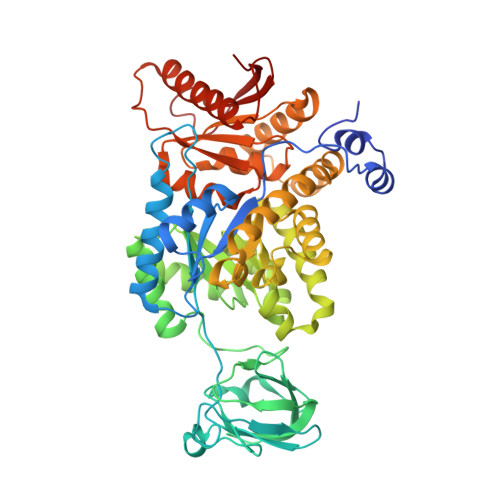PYK-SubstitutionOME: an integrated database containing allosteric coupling, ligand affinity and mutational, structural, pathological, bioinformatic and computational information about pyruvate kinase isozymes.
Swint-Kruse, L., Dougherty, L.L., Page, B., Wu, T., O'Neil, P.T., Prasannan, C.B., Timmons, C., Tang, Q., Parente, D.J., Sreenivasan, S., Holyoak, T., Fenton, A.W.(2023) Database (Oxford) 2023
- PubMed: 37171062
- DOI: https://doi.org/10.1093/database/baad030
- Primary Citation of Related Structures:
8F5T, 8F5U, 8F6M - PubMed Abstract:
Interpreting changes in patient genomes, understanding how viruses evolve and engineering novel protein function all depend on accurately predicting the functional outcomes that arise from amino acid substitutions. To that end, the development of first-generation prediction algorithms was guided by historic experimental datasets. However, these datasets were heavily biased toward substitutions at positions that have not changed much throughout evolution (i.e. conserved). Although newer datasets include substitutions at positions that span a range of evolutionary conservation scores, these data are largely derived from assays that agglomerate multiple aspects of function. To facilitate predictions from the foundational chemical properties of proteins, large substitution databases with biochemical characterizations of function are needed. We report here a database derived from mutational, biochemical, bioinformatic, structural, pathological and computational studies of a highly studied protein family-pyruvate kinase (PYK). A centerpiece of this database is the biochemical characterization-including quantitative evaluation of allosteric regulation-of the changes that accompany substitutions at positions that sample the full conservation range observed in the PYK family. We have used these data to facilitate critical advances in the foundational studies of allosteric regulation and protein evolution and as rigorous benchmarks for testing protein predictions. We trust that the collected dataset will be useful for the broader scientific community in the further development of prediction algorithms. Database URL https://github.com/djparente/PYK-DB.
- Department of Biochemistry and Molecular Biology, The University of Kansas Medical Center, 3901 Rainbow Blvd., Kansas City, KS 66160, USA.
Organizational Affiliation:




















